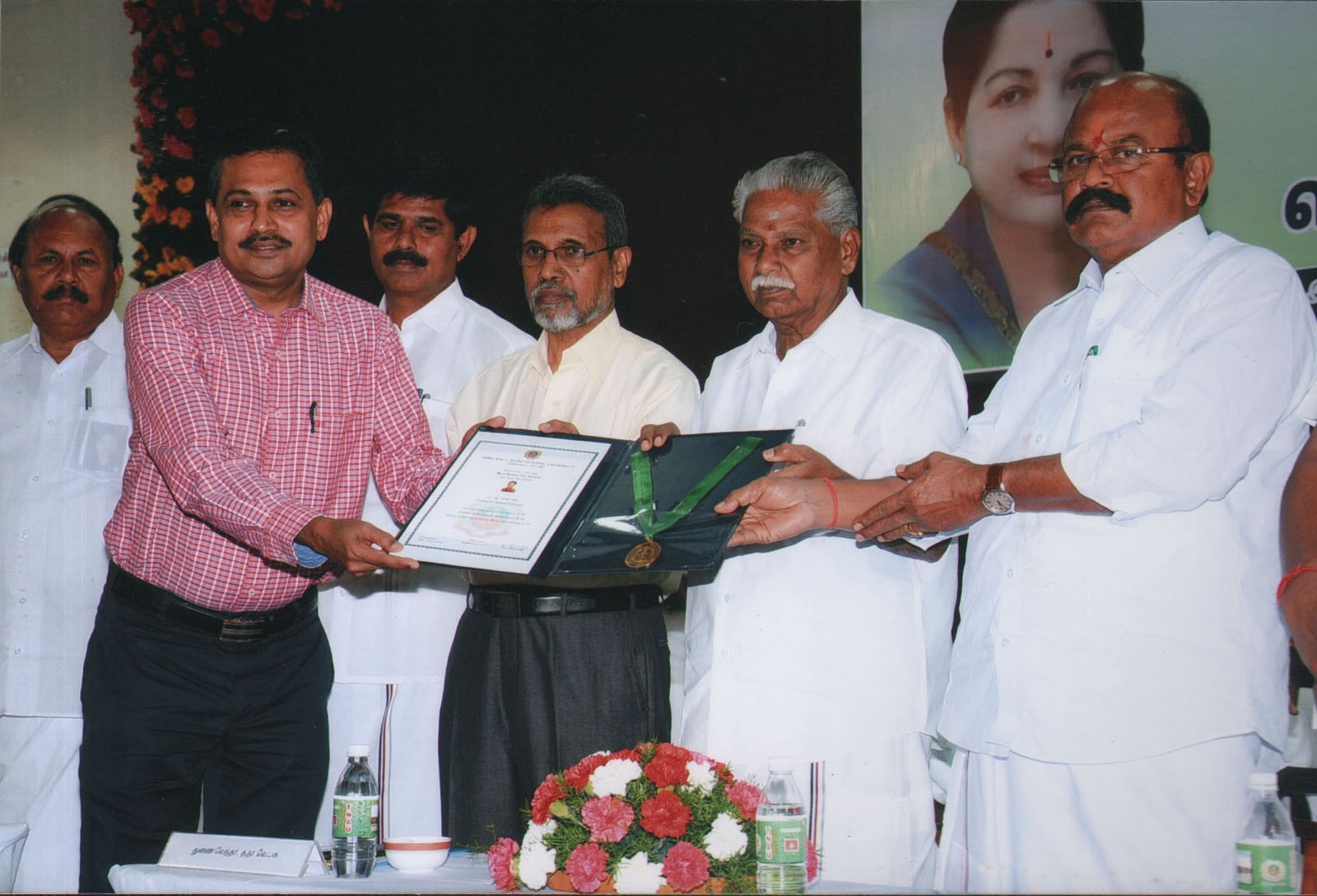TNAU scientist Dr N Senthil receives 2016 Best Researcher Award
July 04, 2016 | Monday | News | By BioSpectrum Bureau
TNAU scientist Dr N Senthil receives 2016 Best Researcher Award
At the 46th Foundation Day celebrations of Tamil Nadu Agricultural University, Dr N Senthil, Project Director, Centre of Innovation, AC&RI, Madurai, and Tamil Nadu Agricultural University, received the Best Researcher Award for the year 2016. Dr Senthil was bestowed with this award for his outstanding contribution to agricultural research, particularly on millets. Dr Senthil was involved in the development of several small millet varieties and wheat varieties suitable for cultivation in Tamil Nadu. He has the expertise and is actively involved in the development of maize varieties though marker assisted breeding for specialty traits like beta carotene.
As a plant breeder, Dr Senthil has been involved in millet breeding program for over a decade and his research has led to the development of high yielding minor millet varieties and their release for commercial cultivation to the farmers. To introduce and popularize wheat cultivation in non-traditional areas of Tamil Nadu three new tropical wheat varieties were developed in collaboration with IARI Wellington. Being a molecular breeder the development of improved crop varieties with superior nutritional quality is the major focus of his current research. In line with this objective, in the past five years, he has secured various research projects in maize nutritional traits. His research activities are supported by Department of Biotechnology, Government of India.
Dr Senthil and his Japanese co-researcher Professor Takao Komatsuda have together identified the genes responsible for barley's domestication that transformed this once wild food grain into an item for mass consumption. Their research work was published in the journal Cell on July 30, 2015. Professors Komatsuda and Sato along with Indian Professor Senthil have elucidated, for the first time, the genetic basis that led to one of the earliest human cropping activities and eventually to modern agriculture. In their research, two great mysteries about the evolution of wild barley and its transition to modern cultivated barleys were unlocked. A natural mutation in one gene (Btr1) resulted in the establishment of cultivated barley in modern Israel about 10 thousand years ago, while an independent mutation in the other gene (Btr2) occurred later in North west Syria and south east Turkey.
As the Head of the department of Biotechnology at AC&RI, Madurai he is working on the establishment of graduate students teaching facility, developing multidisciplinary research project in the focus areas of Southern agro climatic eco systems of Tamil Nadu. Currently he is working as Project Director, Centre of Innovation at AC&RI, Madurai with the responsibility of establishment of Central Instrumentation facility at a cost of Rs 5.30 crore.









